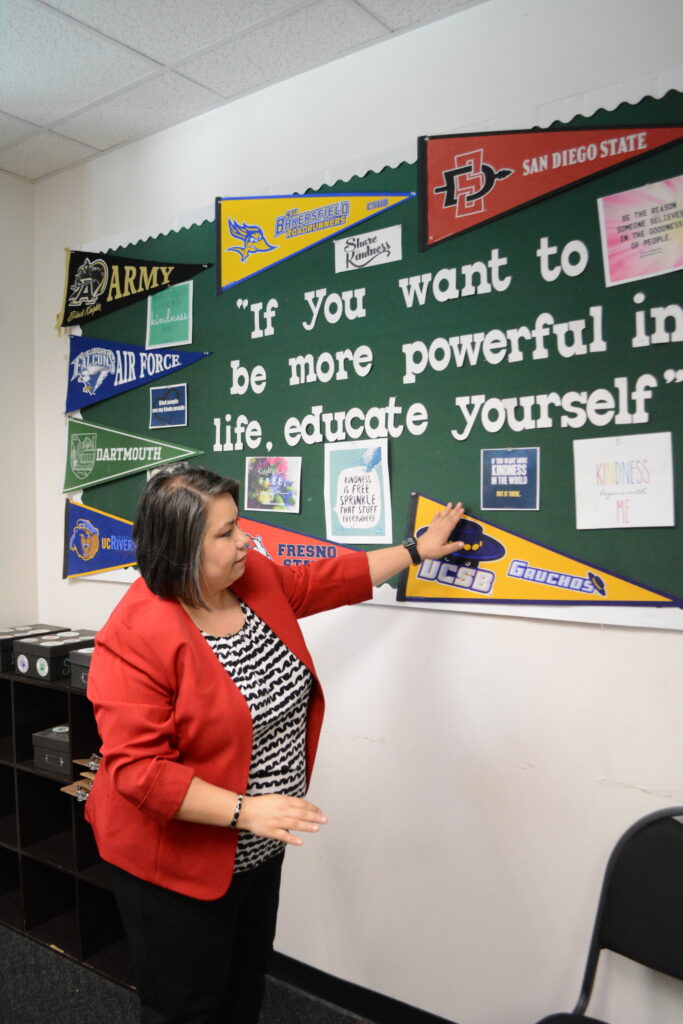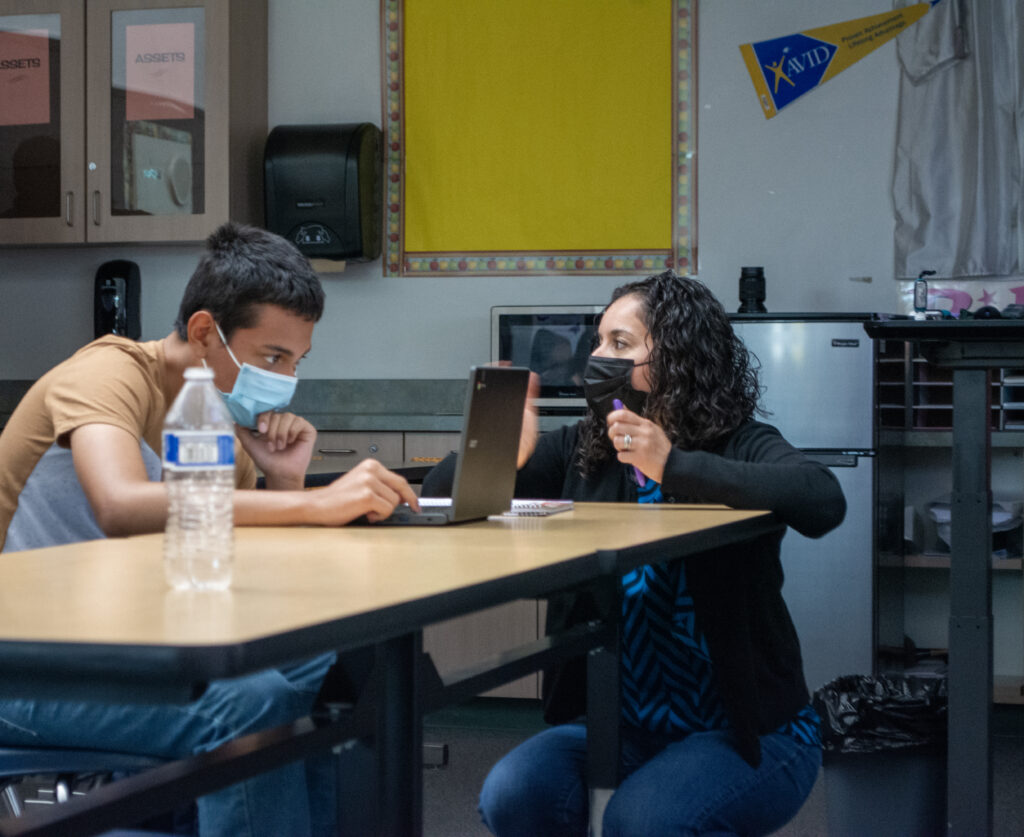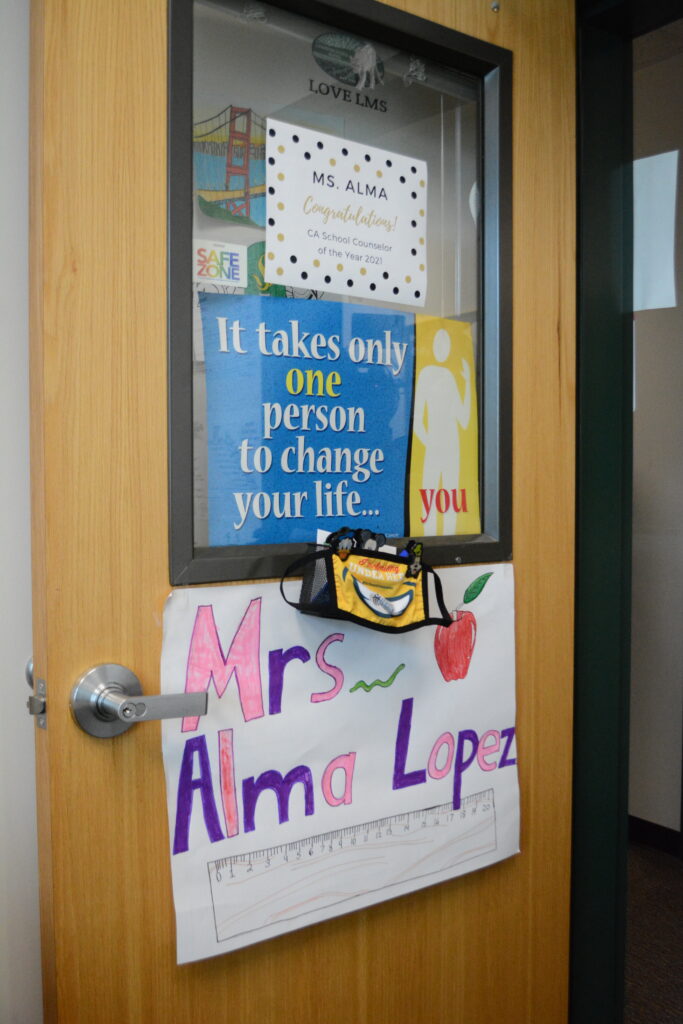
Livingston Union School District outpaced California in improving chronic absenteeism, suspensions and student well-being.
Courtesy of Geneva Sum
Top Takeaways
Livingston Union School District improved chronic absenteeism, suspensions and student well-being by investing in school counselors, according to a new study by the UCLA Center for the Transformation of Schools.
Unlike most schools in California, counselors meet with every student and their family in fourth and seventh grades.
During the surge in mental health requests during the Covid-19 pandemic, LUSD continued to expand remote counseling, classroom lessons and opportunities for social interaction.
Livingston Union School District improved chronic absenteeism, suspensions and student well-being by investing in school counselors, according to a new study by the UCLA Center for the Transformation of Schools.
The study examines how Livingston Union, a small, five-campus K-8 school district in Merced County, implemented comprehensive school counseling — a system of integrated academic and mental health support for students and families — to outpace California on key metrics of post-pandemic recovery.
“[Livingston Union’s] school counseling model is innovative in the sense that it is comprehensive,” said Joe Bishop, researcher at the UCLA Center for the Transformation of Schools and author of the study. “They’re having school counselors do so much more than the field is doing in terms of academics and student support.”
According to the study, Livingston Union lowered chronic absenteeism from a post-pandemic peak of 18.3% in 2023 to 14.2% in spring 2024, exceeding a goal of reducing chronic absenteeism by 3% by the end of the school year. In 2024, California reported a chronic absenteeism rate of about 20% statewide.
 Alma Lopez, lead school counselor, helps display college banners at Livingston Middle School. Credit: Geneva Sum
Alma Lopez, lead school counselor, helps display college banners at Livingston Middle School. Credit: Geneva Sum
LUSD also lowered suspension rates from 3.4% to 2.8% between 2022 and 2023. In the same time frame, California’s suspension rates jumped from 3.1% to 3.5% between 2022 and 2023. The district’s suspension rate for students with disabilities also decreased by 5.5% between 2011-2012 and 2018-2019, while schools across Merced County saw an increase in suspensions.
Alma Lopez, lead school counselor at Livingston Union, said that school counselors run regular “student information reports” and meet with students who are earning multiple Fs in certain subjects, struggling to make it to school or have received multiple office referrals for detention or suspensions.
“We’re looking at the data to identify the students initially, and then digging a little deeper to try and find what’s the root cause of the challenge they’re having,” Lopez said. “And then looking at what could be an intervention for that student in a particular situation.”
A student struggling to complete assignments, for example, could be encouraged to join a six- to eight-week group intervention on motivation and growth, while another might join a tutoring group focused on study skills. A student struggling with chronic absences could receive help with transportation, while another could sign up for sessions with a medical or mental health provider to address health issues.
The study also found that school counseling generally improved student belonging, safety, and well-being at Livingston Union. In the 2019–2020 school year, about eight in 10 students demonstrated high academic motivation and felt well-supported in social-emotional learning, while two in 10 reported frequent sadness, which remained about the same for the next two school years.
Elizabeth Alvarez, a parent of a seventh grade student at Livingston Middle School, reached out to a school counselor after her daughter started experiencing anxiety and stomach aches during her transition from elementary to middle school. Alvarez said her daughter already knew she could go to her counselor for help, because she had interacted with her counselor during campus activities at lunch and in the classroom.
 Elizabeth Alvarez, a teacher and parent in Livingston, works with a student at Livingston Middle School. Credit: Geneva Sum
Elizabeth Alvarez, a teacher and parent in Livingston, works with a student at Livingston Middle School. Credit: Geneva Sum
“When my daughter met with her, and she came home and showed us all these things that the counselor had given her — all these strategies, games and handouts about coping skills — and then the counselor touching base with us, it was easy for us to gain that trust,” said Alvarez. “It’s been three years, and my daughter still has all of those handouts, some on the fridge, some in her bedroom.”
Students who have continuous support from a trusted counselor report better academic and mental health outcomes, according to EdResearch for Action. For Bishop, the author of the UCLA study, Livingston Union’s progress reflects that same principle on a larger scale.
“What strikes me about Livingston is their leadership stability,” said Bishop. “In other case studies, there’s a lot of turnover. The work [Livingston Union] is doing speaks to the idea that you need leaders to stick around for good things to happen.”
Unlike most schools in California, Livingston Union counselors meet with every student and their family in fourth and seventh grades to discuss any academic and personal challenges. They also teach lessons in career guidance or social-emotional learning, provide one-on-one counseling for students, and connect parents to resources like food banks, grief counselors and legal assistance.
“The fact that we have these long-lasting relationships allows us to work closely with our families, because they know us and they trust us,” Lopez, who has been a counselor at Livingston Union for 20 years. “When a family leaves my room, and they say, ‘When are we going to see you again?’ they’re seeing value in that intentional time dedicated to each student and their family.”
Alvarez, who grew up on a farm in rural Merced County and attended Livingston High School, said she struggled to navigate her own journey as a first-generation college student without any guidance at school. In an agricultural county where many parents work 12 to 16-hour shifts a day, Alvarez said Livingston Unified’s counselors fill a critical role in helping guide a student’s future.
“Even at my daughter’s seventh grade counseling meeting that we have with [Lopez], I learned a lot,” said Alvarez. “I was reminding my daughter of deadlines and career opportunities beyond college. And I just know that keeping the kids informed at an early age is beneficial for them in the future, because they’re able to make choices that other kids may not.”
During the surge in mental health requests at the onset of the Covid-19 pandemic, LUSD also made a strong pivot to remote counseling, classroom lessons and opportunities for social interaction through virtual recess and game nights, Lopez said. They also provided support for children who lost crucial social-emotional development skills.
 Alma Lopez’s office door at Livingston Middle School. Credit: Geneva Sum
Alma Lopez’s office door at Livingston Middle School. Credit: Geneva Sum
“We’re seeing new dynamics with behaviors and adjustments to learning,” said LUSD Superintendent Andrés Zamora in the study. “To this day, we live some of that, and our counselors are taking the lead on how we support learning and are being very influential in how that affects classrooms.”
For many students, early and reliable intervention during the pandemic made a lasting difference. Lopez recalled when a mother reached out for help after her son had lost his father and three other family members during the pandemic.
“The first time I met him, he was in a fetal position with a blanket wrapped around him, just really hurting. And each time that I would meet with him virtually, I would see a little bit more of him in his space, sitting up, holding his baby sister, starting to open up,” said Lopez.
After schools reopened, Lopez said that the student walked into her counseling office and asked to continue talking about his grief.
“The impact in his attendance, grades, and learning how to advocate for what he felt he needed was pretty remarkable to see,” said Lopez.